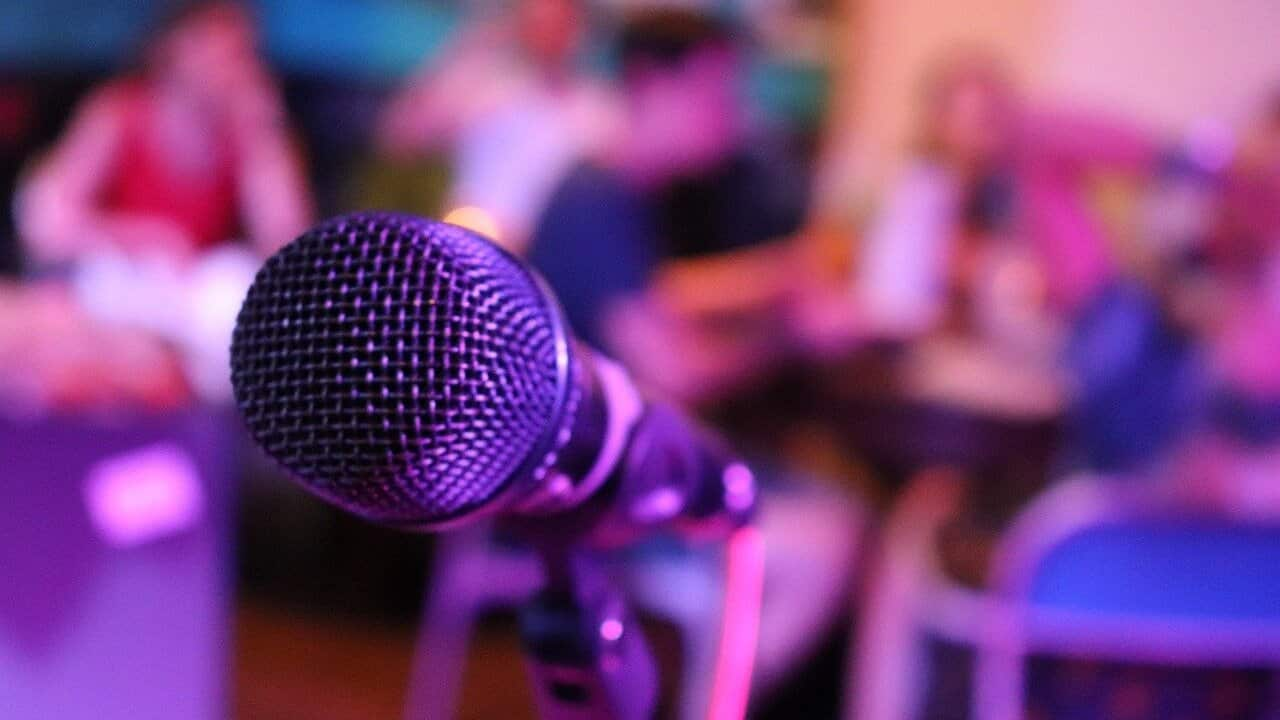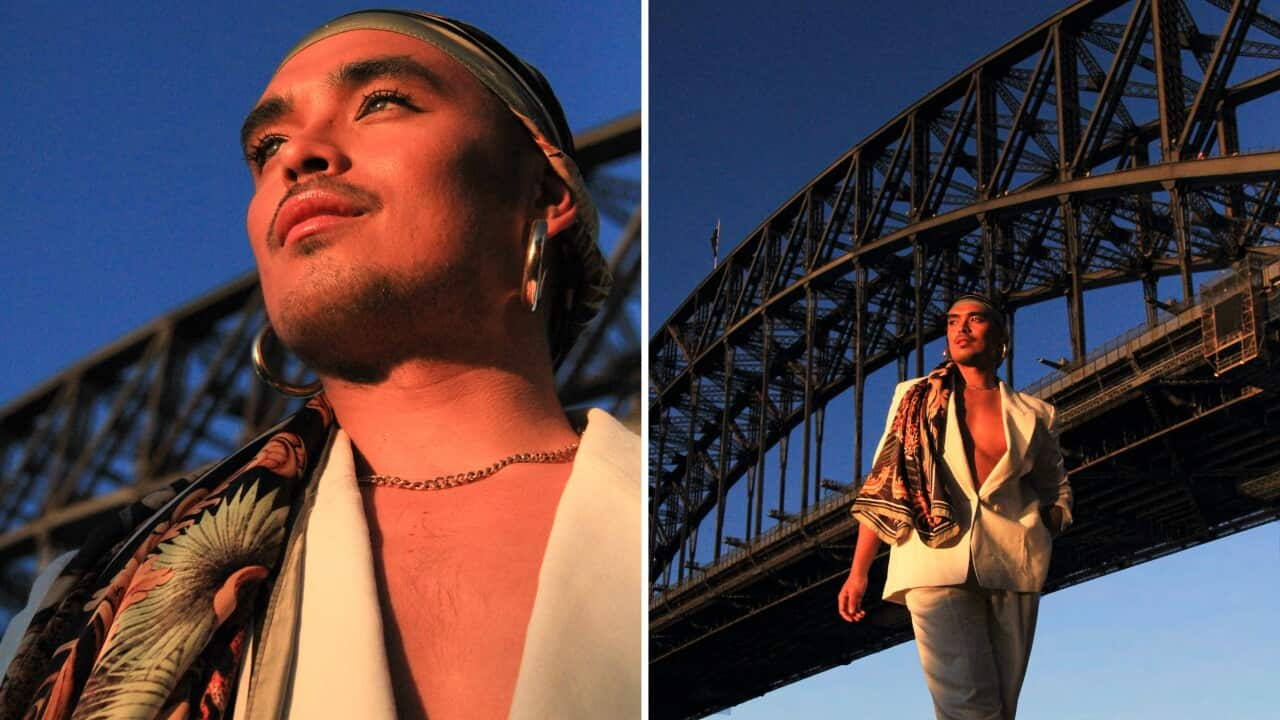Highlights
- Singing is a form of expression of the body.
- Music therapy is utilised to help people deal with trauma and stress.
- Seann Miley Moore, Sheldon Riley and Erica Padilla are the three Filipino-Australians vying to represent Australia in Eurovision this May.
"I haven't been out doing karaoke with friends in a while because of the pandemic. I still sing alone at home though," mental health counsellor Candice Garcia laughs.
Like Candice, many Filipinos have a love for karaoke. Whether alone or with a group, the activity allows for a physical release of pent-up emotions.
Expression of the body
"Filipinos grow up being exposed to singing and karaoke. There's always singing during parties and celebrations. We do karaoke as a way to relax, enjoy and bond with family and friends. It's an activity that's embedded in our culture," Candice shares.
Studies have found that .
"Singing is a form of expression of the body. Actually, as a counsellor, we use music therapy to help people - through singing, dancing or just even listening to music," Candice says, adding, "There are emotional and physical benefits to it."
No stage fright?
One of the benefits of singing karaoke is the absence of stage fright - or the seeming lack of it.
"There's either no stage fright or at least stage fright is less apparent. It may be because the people you are with are familiar to you and are less likely to judge you harshly. It may be because the lyrics to the song are available so there's no fear of forgetting," Candace states, adding, "Or because drinking and laughing usually go hand in hand with the activity, making it less stressful and more enjoyable."
Birit and ballads
"It's funny - people assume you have a good voice because you're Filipino. Based on my singing voice, that's not true at all," Candice laughs.
This presumption could be based on the Filipino's penchant for heavy ballads with high-pitched vocals and trills.
"Part of the birit (high-pitched, strong vocals) is, of course, showing off your vocal range. It's showing off what you can do and can be attributed to a bit of competitiveness. After all, we Filipinos love our singing contests."
The Filipino-Australians of Eurovision 2022
And when it comes to singing contests, what could be bigger in Australia this month than 'Eurovision - Australia Decides'?
Three out of the eleven contestants vying to represent the country in Eurovision this May are Filipino-Australians.
Seann Miley Moore of The Voice fame grew up with singing and karaoke, sharing, "Growing up, we would have these parties that I would go to with these fabulous, fierce, free women - my crazy Filipino titas - with the karaoke mic, causing a loud raucous and wearing their fabulous clothes! I got my energy from them.
"I remember I always loved doing Mariah Carey's 'Hero' and my mum loved to sing 'Wind Beneath My Wings."
Erica Padilla, the first ever TikTok Wildcard, also grew up with karaoke and singing.
"While I was growing up, my parents really like music and singing especially my dad. I grew up listening to them, by the karaoke machine pretty much.
“I grew up singing Beyonce’s ballad songs. I learn to take inspiration from her. I really enjoyed how she performs, taking a lot of inspiration from that and it’s really helpful in developing my own style as well," she shares.
The third Filipino-Australian in the competition is the distinctive Sheldon Riley, who has evolved in both style and singing throughout the years.
"Eurovision is a main goal. It has always been my thing as a little kid watching. They're just so weird and so different and so accepted for doing absolutely everything," he shares.
Tune into SBS on 26 February at 8.30pm AEDT to see Eurovision–Australia Decides and cast your vote. Australia’s 2022 Eurovision artist will be revealed during the show.



